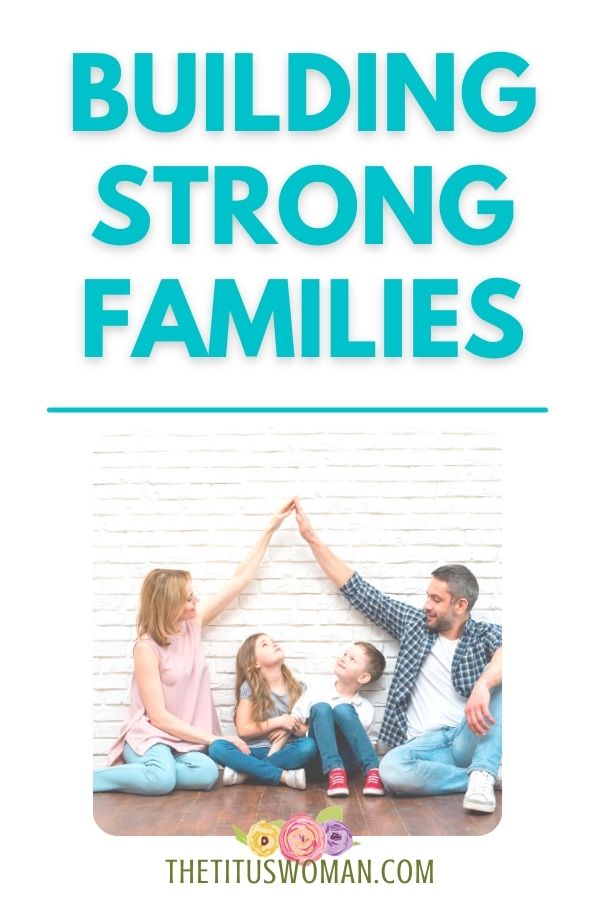A strong family foundation is the cornerstone of a happy and healthy family. It provides a sense of security, stability, and belonging, which are essential for individual growth and development. Building such a foundation requires effort, dedication, and commitment from all family members. In this article, we will explore the importance of a strong family foundation, its key components, and practical tips on how to build and maintain it.

Why is a Strong Family Foundation Important?
A strong family foundation is crucial for several reasons:
- Emotional Security: A stable family environment provides children with a sense of emotional security, which is vital for their mental and emotional well-being.
- Role Modeling: Parents serve as role models for their children, teaching them important values, morals, and life skills.
- Social Skills: Family relationships help children develop essential social skills, such as communication, empathy, and conflict resolution.
- Support System: A strong family foundation provides a support system for its members, helping them navigate life’s challenges and overcome obstacles.
- Legacy: A strong family foundation lays the groundwork for a lasting legacy, fostering a sense of continuity and tradition.
Key Components of a Strong Family Foundation
- Communication: Open, honest, and respectful communication is essential for building trust, understanding, and resolving conflicts.
- Respect: Mutual respect among family members is vital for fostering a positive and supportive environment.
- Trust: Trust is the glue that holds families together, enabling them to rely on each other and build strong relationships.
- Love and Affection: Demonstrating love and affection towards each other helps to strengthen family bonds and create a sense of belonging.
- Shared Values and Beliefs: A shared set of values and beliefs provides a common framework for family decision-making and problem-solving.
Practical Tips for Building a Strong Family Foundation
- Schedule Family Time: Regularly schedule family activities, such as dinner together, game nights, or outdoor activities, to foster bonding and create lasting memories.
- Practice Active Listening: Make an effort to truly listen to each other, focusing on the speaker and avoiding interrupting or dismissing their views.
- Show Appreciation: Express gratitude and appreciation towards each other, no matter how small the gesture may seem.
- Encourage Open Communication: Create a safe and non-judgmental space for family members to share their thoughts, feelings, and concerns.
- Set Boundaries and Rules: Establish clear boundaries and rules to promote a sense of discipline and responsibility.
- Foster a Sense of Responsibility: Encourage family members to take ownership of their actions and decisions, promoting accountability and personal growth.
- Celebrate Milestones and Traditions: Celebrate important milestones, such as birthdays, anniversaries, and holidays, to create lasting memories and reinforce family bonds.
Common Challenges and How to Overcome Them
- Conflict Resolution: Practice active listening, remain calm, and focus on finding a mutually beneficial solution.
- Differences in Opinion: Respect each other’s views, compromise when possible, and agree to disagree when necessary.
- Busy Schedules: Prioritize family time, schedule regular activities, and make the most of quality time together.
- Generational Differences: Embrace differences in values, beliefs, and lifestyles, and focus on finding common ground and learning from each other.
Frequently Asked Questions (FAQs)
Q: How do I build a strong family foundation when I come from a broken home?
A: Focus on creating a positive and supportive environment for your own family, and seek guidance from trusted mentors or professionals if needed.
Q: What if my family members have different schedules and priorities?
A: Prioritize quality time together, even if it’s just a few minutes each day, and find activities that work for everyone.
Q: How do I handle conflicts and disagreements within the family?
A: Practice active listening, remain calm, and focus on finding a mutually beneficial solution.
Q: Can I still build a strong family foundation if I’m a single parent?
A: Yes, focus on providing a stable and loving environment, and seek support from family, friends, or community resources when needed.
Conclusion
Building a strong family foundation requires effort, dedication, and commitment from all family members. By prioritizing communication, respect, trust, love, and shared values, you can create a lasting legacy of love, unity, and support. Remember to schedule family time, practice active listening, show appreciation, and foster a sense of responsibility. By overcoming common challenges and embracing each other’s differences, you can build a strong family foundation that will stand the test of time.
Closure
Thus, we hope this article has provided valuable insights into Building a Strong Family Foundation: A Blueprint for Lasting Relationships. We hope you find this article informative and beneficial. See you in our next article!